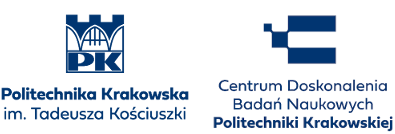Z A P R O S Z E N I E
prof. dr hab. inż. Paweł Ocłoń
Dyrektor Centrum Doskonalenia Badań Naukowych PK
oraz
prof. dr hab. inż. Jan Taler
Członek Rady Naukowej Centrum Doskonalenia Badań Naukowych PK
zapraszają na wykład profesora Xudong Zhao
“A novel low carbon heating system – research and application”
który odbędzie się online w dniu 23 maja 2023 r. o godzinie 11:00
link do wydarzenia na platformie Teams:
Professor Xudong Zhao Director
Centre for Sustainable Energy Technologies
University of Hull
Unit Kingdom
Xudong.Zhao@hull.ac.uk
Abstract
The presentation addressed a novel low carbon heating system applicable to public and domestic buildings in an energy efficient way. In the system, the multiple-throughout-flowing panels-array in combination with micro-channel structure for individual panels are the most creative technologies that has proven to be able to achieve 10% higher solar thermal efficiency and 100% higher energy efficiency ratio compared to the existing solar thermal system. In addition, a novel double-source heat pump is applied when solar radiation is weak or insufficient. This makes use of exhaust air to defrost the heat pump evaporator and enable the two-stage heat recovery from both the ambient and exhaust air, thus increasing the energy efficiency of the heat pump by around 30%. Further, the coupled heat storage/exchanger with the double containers is able to speed up heating time and increase the heat transfer capacity of the system, and is regarded as an additional initiative.
Prezentacja dotyczy nowatorskiego, niskoemisyjnego systemu grzewczego, który można zastosować w budynkach użyteczności publicznej i budynkach jednorodzinnych w sposób efektywny energetycznie. W systemie zastosowano układ paneli w połączeniu ze strukturą mikrokanałów dla poszczególnych paneli to najbardziej efektywne technologie, które pozwoliły osiągnąć o 10% wyższą efektywność cieplną i o 100% wyższy współczynnik efektywności energetycznej w porównaniu do istniejącej instalacji solarnej. Ponadto, gdy promieniowanie słoneczne jest słabe lub niewystarczające, stosowana jest nowatorska dwuźródłowa pompa ciepła. Dzięki temu powietrze wywiewane jest wykorzystywane do odszraniania parownika pompy ciepła i umożliwia dwustopniowy odzysk ciepła zarówno z powietrza otoczenia, jak i powietrza wywiewanego, zwiększając w ten sposób efektywność energetyczną pompy ciepła o około 30%. Ponadto sprzężenie magazynu/wymiennika ciepła z podwójnymi zbiornikami jest w stanie przyspieszyć czas nagrzewania i zwiększyć zdolność wymiany ciepła systemu i jest traktowane jako dodatkowa opcja systemu.
Biography
Xudong Zhao is the Fellow of European Academy of Sciences, Chair Professor and Founding Director of the Centre for Sustainable Energy Technologies (CSET), and Deputy Director of Energy and Environment Institute (EEI) at the University of Hull. He has enjoyed a global reputation as a distinguished academic in the areas of renewable solar energy, energy efficiency, and sustainable heating, cooling and power technologies with particular strength in integrating renewable solar energy and energy efficiency technologies/sources (e.g. ambient energy, PVs, solar thermal and light collectors, and PV/Thermal, heat pipe, heat pump, CHP and PCM etc) into various decentralised heating, cooling and power systems, thus creating the de-carbonized, decentralized and off-grid energy systems. Over more than 30 years of professional career, he has led or participated in 67 research projects funded by the EU, EPSRC, Royal Society, Innovate-UK, Royal Academy of Engineering, China Ministry of Science and Technology and industry with the accumulated fund value in excess of £27.5 million, 40 engineering consultancy projects worth £5 million, and claimed 14 patents. Up to date, he has supervised 39 PhD students and 29 postdoctoral research fellows, published 315 peer-reviewed papers in high impact journals and referred conferences (with GOOGLE SCHOLAR citation number of 12,958, hi-index papers number of 58, i10-index paper number of 237, and citation increasing rate of 60% over the past 5 years), was selected into the ‘2017 world highly cited researchers list’ (only 5 from the UK in Engineering), involved authorization of 8 books, chaired, organized and gave keynote (invited) speeches in over 30 international conferences. His researches in solar PV, solar thermal, solar PV/T (photovoltaic/thermal), heat pump, and sustainable heating & cooling have achieved world-leading standards, being selected at the ‘2017 world most highly cited researchers list’, ‘2020 & 2021 World top 2% Scientists list’, receiving the ‘2018 UK Rushlight Innovation Award’, ‘2019 Newton Prize Finalists Award’, ‘European Dragon-STAR Innovation Silver Award (2nd place) – 2015’, ‘World Society of Sustainable Energy Technology 1st, 2th and 3th Round Innovation Awards’ in consecutive years of 2016, 2017 and 2018, and being nominated as a candidate for ‘2018 World Eni-awards’. He is currently undertaking a number of important national and international roles: (1) Member of the UK ‘EPSRC Engineering Prioritisation Panel’; (2) Executive Board Member of the ‘World Society of Sustainable Energy Technologies’; (3) Executive Board Member of the ‘International Conference Series for Sustainable Energy Technologies’; (4) Steering Committee Member of the ‘European District Heating and Cooling Technology Platform’ involving development of work documents for European Commission in this subject (e.g. Digital District Heating and Cooling etc); (5) Subject editor or editorial board member of the journals ‘Energy’, ‘Energy Conversion and Management, ‘Renewable Energy’, ‘Energies’, ‘Future Cities and Environment’, ‘Frontiers in Built Environment and Mechanical Engineering’, ‘Heat Exchangers’, ‘Sustainable Cities and Society’, ‘Journal of Architectural Research and Development (JARD)’, ‘Heating, Ventilation and Air Conditioning’ and ‘Chinese Journal of Mechanical Engineering’; (6) Guest Lead Editors for the ‘Applied Energy’, ‘Energy’, ‘Solar Energy’, ‘Renewable Energy’, ‘International Journal of Photo-energy’, ‘Energies’, and ‘Frontier of Energy Researches’; (7) The referee for EU FP7 programme, colleague member of EPSRC (UK), referee of ESRC (UK), French National Agency (ANR), Kazakhstan National Science and Technology Ministry, Portugal Science and Technology section and Hong Kong Research Grant Council; and (8) UK Newton Fund Programme Advisor focusing on China related research collaboration. Further, he was selected as the ‘Fellow of European Academy of Sciences’, ‘Fellow of Energy Institute’,‘Fellow of Charted Institution of Building Services Engineers (CIBSE)’, ‘Fellow of World Society of Sustainable Energy Technologies (WSSET)’ and won the sole ‘Research Excellence Award’ in 2018 at the University of Hull.
